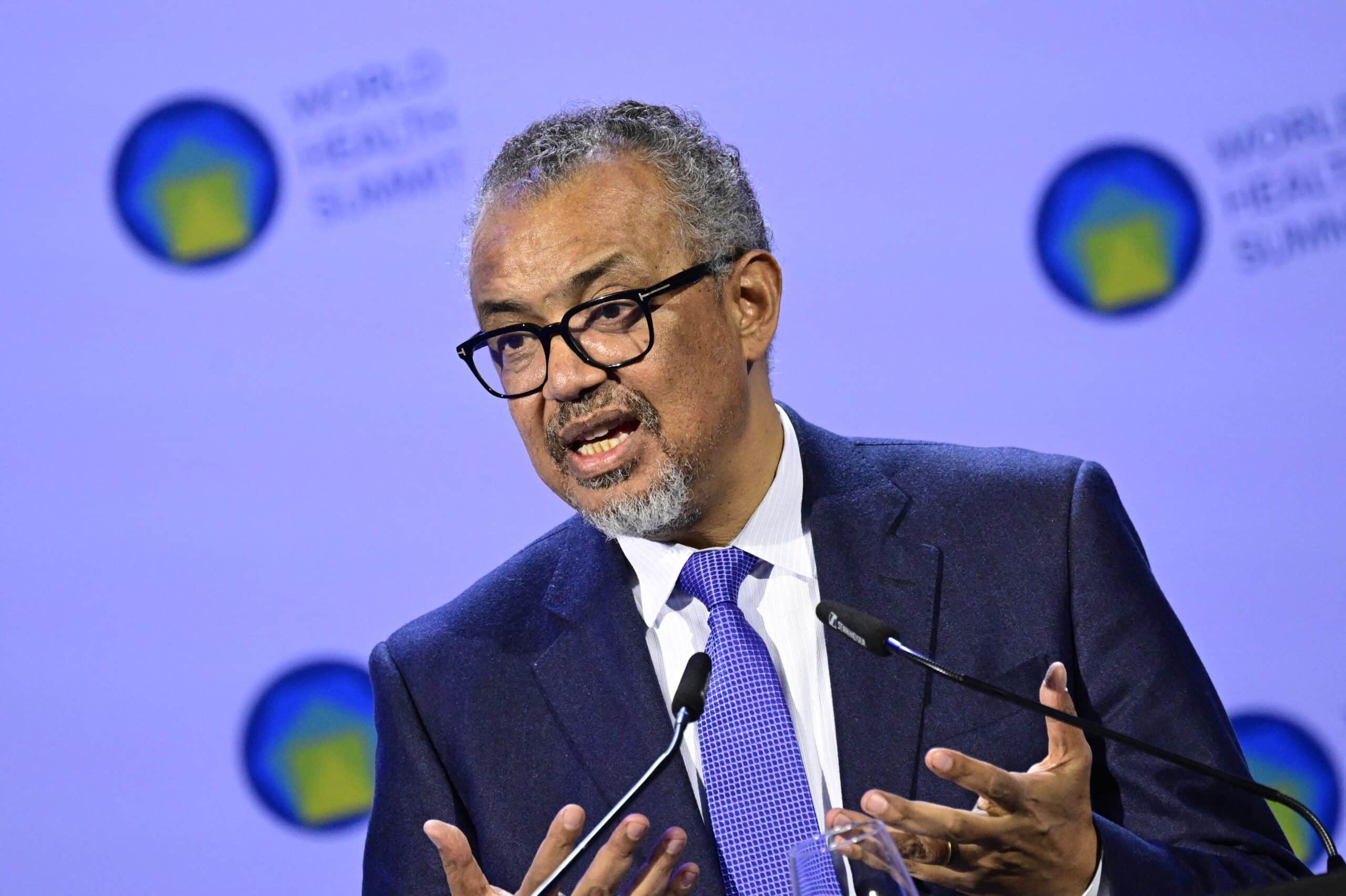
Director-General of the World Health Organization (WHO) Tedros Adhanom Ghebreyesus addresses participants of the World Health Summit 2024 in Berlin on October 14, 2024. (Photo by John MACDOUGALL / Agence France-Presse)
UNITED NATIONS, United States — The World Health Organization (WHO) and some 50 countries issued a warning at the United Nations (UN) about the rise of ransomware attacks against hospitals, with the United States specifically blaming Russia.
Ransomware is a type of digital blackmail in which hackers encrypt the data of victims – individuals, companies, or institutions – and demand money as a “ransom” in order to restore it.
Such attacks on hospitals “can be issues of life and death,” according to WHO head Tedros Adhanom Ghebreyesus, who addressed the UN Security Council (UNSC) during a meeting on Friday, November 8, called by the United States.
READ: UN approves its 1st treaty targeting cybercrime
“Surveys have shown that attacks on the healthcare sector have increased in both scale and frequency,” Ghebreyesus said, emphasizing the importance of international cooperation to combat them.
“Cybercrime, including ransomware, poses a serious threat to international security,” he added, calling on the UNSC to consider it as such.
A joint statement co-signed by over 50 countries – including South Korea, Ukraine, Japan, Argentina, France, Germany, and the United Kingdom – offered a similar warning.
“These attacks pose direct threats to public safety and endanger human lives by delaying critical healthcare services, cause significant economic harm, and can pose a threat to international peace and security,” reads the statement, shared by US Deputy National Security Advisor Anne Neuberger.
READ: Extortionware: What makes it different from ransomware?
The statement also condemned nations that “knowingly” allow those responsible for ransomware attacks to operate from.
At the meeting, Neuberger directly called out Moscow, saying: “Some states – most notably Russia – continue to allow ransomware actors to operate from their territory with impunity.”
France and South Korea also pointed the finger at North Korea.
Russia defended itself by claiming the UNSC was not the appropriate forum to address cybercrime.
“We believe that today’s meeting can hardly be deemed a reasonable use of the Council’s time and resources,” said Russian ambassador Vassili Nebenzia.
“If our Western colleagues wish to discuss the security of healthcare facilities,” he continued, “they should agree in the Security Council upon specific steps to stop the horrific… attacks by Israel on hospitals in the Gaza Strip.”